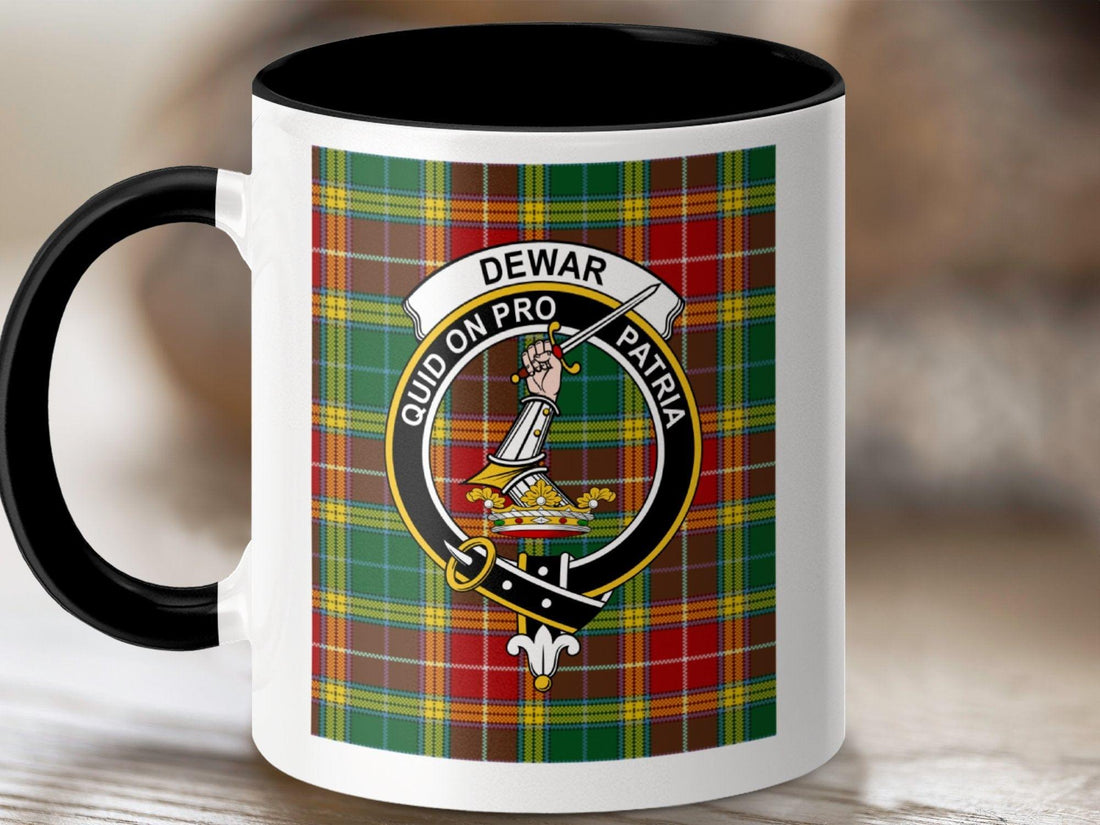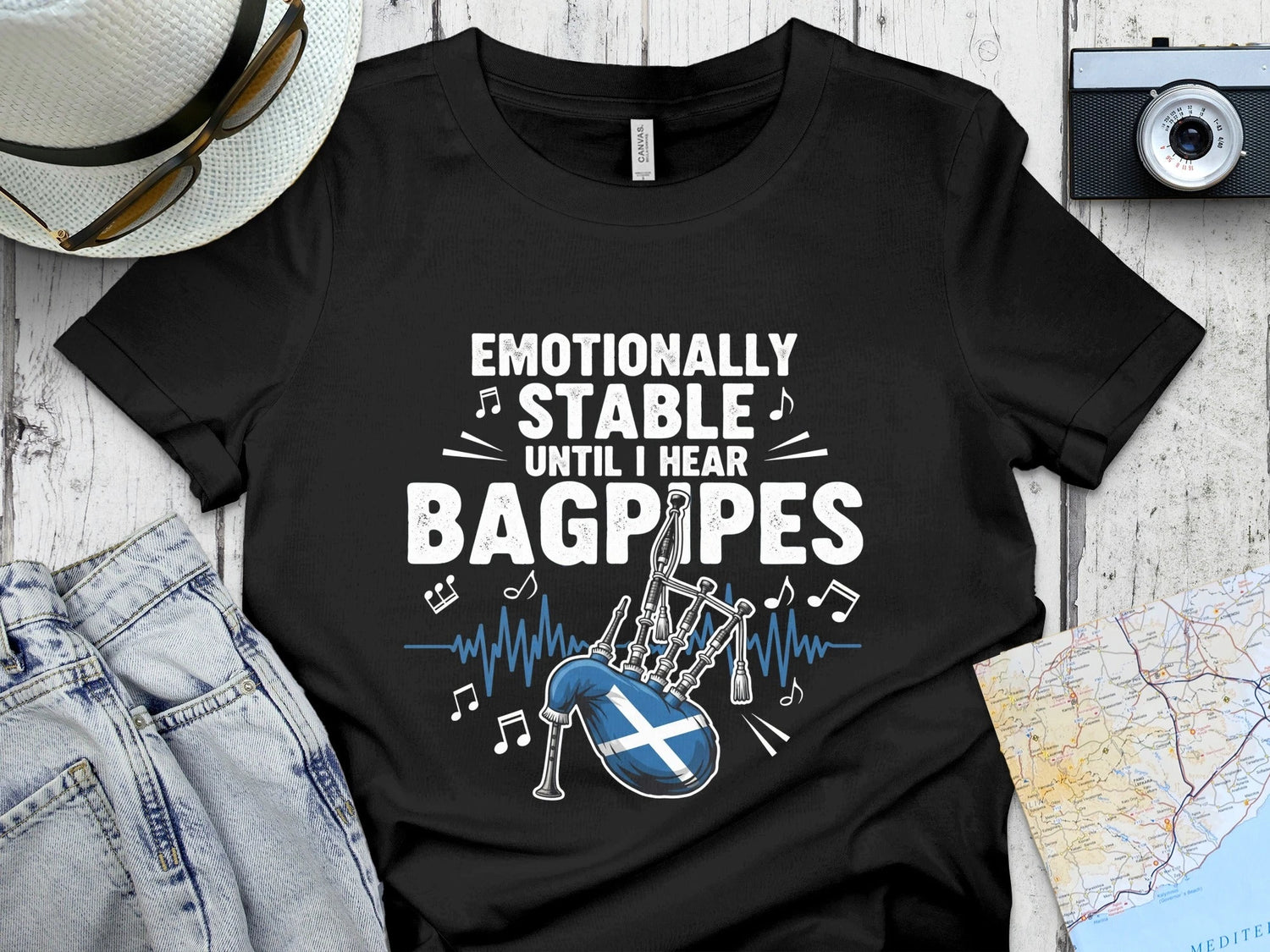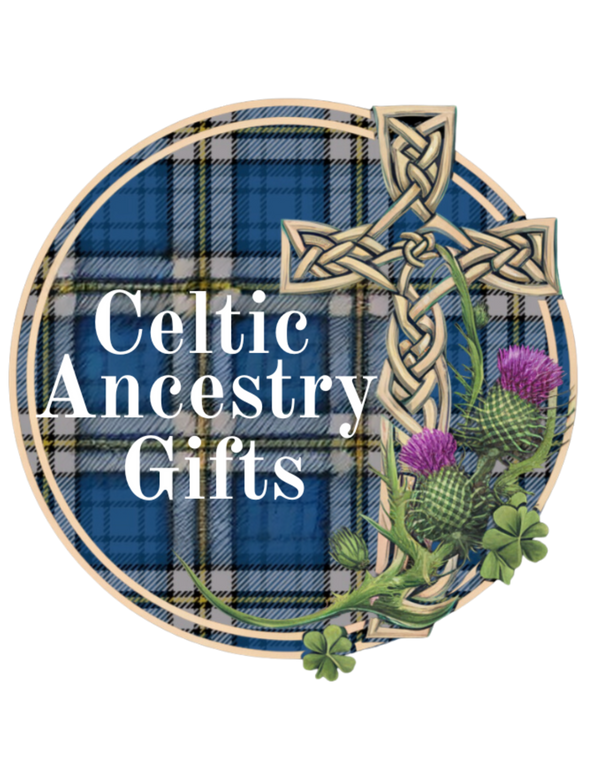
Clan Dewar: Keepers of Ancient Wisdom and Brave Highland Hearts
Share
Clan Dewar: Guardians of Wisdom and Highland Spirit – The Enduring Legacy of an Ancient Clan
In the shadows of Highland glens and the libraries of ancient monasteries, Clan Dewar carved a reputation that blends scholarship, courage, and loyalty. While many Scottish clans are famed for their battlefield conquests, Clan Dewar stands apart for a legacy equally rooted in faith, tradition, and the sacred preservation of knowledge.
With roots tracing back to early medieval Scotland, Clan Dewar’s story includes monastic duties, land ownership in Perthshire, participation in Highland battles, and a strong modern revival. Whether you're a descendant of Dewar or simply fascinated by Celtic history, this is a clan with a uniquely noble past and present.
👉 Explore Clan Dewar products now:
🔗 https://celticancestrygifts.com/search?q=dewar&options%5Bprefix%5D=last
🧬 History and Origins of Clan Dewar
The name Dewar is derived from the Gaelic word “Deoradh”, meaning pilgrim or custodian of relics. This spiritual connotation reflects the clan's ancient role as guardians of sacred objects, including holy relics and manuscripts in the early Celtic church.
Clan Dewar is believed to have originated in Perthshire, where early records associate them with lands in Aberfeldy and Weem. The Dewars were hereditary keepers of the Bachuil Mor, a holy staff believed to belong to Saint Fillan—a relic so sacred it was carried into battle to inspire and protect Scottish warriors.
This sacred duty connected Clan Dewar not only to the church but to Scottish royalty, including Robert the Bruce, who is said to have invoked St. Fillan’s relics before the Battle of Bannockburn.
⚔️ Clan Dewar and the Wars of Independence
Although not a clan known for widespread military might, Clan Dewar played key roles during Scotland’s battles for freedom—notably through spiritual leadership and battlefield support.
During the early 14th century, Dewars of Glendochart were associated with Robert the Bruce, supporting the cause of Scottish independence. Their possession of holy relics was seen as a divine endorsement of the king’s right to rule.
In a time when symbols of faith were as powerful as swords, the Dewars stood as Highlanders who could both fight and inspire.
🏰 Clan Dewar Castles and Landmarks
Though smaller in number than some larger clans, Clan Dewar boasts several historically significant landmarks:
1. Dewar House (Auchterarder)
A key family seat, Dewar House was held by members of the clan who owned lands in Perthshire. The surrounding estate played a central role in Dewar heritage and gatherings.
2. Cambuskenneth Abbey
Not directly a Dewar castle, but an important religious site where Dewars were believed to have assisted in manuscript keeping and monastic duties during the medieval period.
3. Relic of St. Fillan (The Bachuil Mor)
Now housed in the National Museum of Scotland, this ancient staff was once guarded by the Dewars and represents their role as spiritual custodians.
4. Dewar's World of Whisky (Aberfeldy)
While not an ancestral home, this modern site pays tribute to the famous Dewar whisky family, who helped put the name Dewar on the map internationally.
🧵 Dewar Tartan, Crest & Motto
🛡️ Crest:
A dexter hand holding a sword in bend, symbolizing readiness and righteousness.
🗣️ Motto:
“Quid non pro patria”
(“What would one not do for their country”) – a powerful expression of loyalty and sacrifice.
🧵 Tartan:
The Dewar tartan is a bold and stately pattern, showcasing deep blues, reds, and green. It symbolizes both nobility and devotion, perfect for those proud to display their Highland heritage.
There is also a Dewar Dress Tartan, a lighter variation often worn for ceremonial occasions.
🧭 Clan Connections and Septs
Clan Dewar has a more independent origin than many other clans and was not historically a part of a larger clan confederation. However, Dewars are believed to have occasionally allied with Clan Menzies and Clan MacNab due to proximity and land ties in Perthshire.
The name “Dewar” appears in different forms, including:
-
Deoradh
-
Dewar of Cambuskenneth
-
Dewar of Glendochart
If you carry the Dewar name—or descend from a line associated with monastic stewardship or Highland Perthshire—you may have roots in this noble clan.
⚖️ Political Role and Loyal Service
Clan Dewar’s political influence was more spiritual than feudal, but they remained firm supporters of the Scottish monarchy, especially during the medieval period and the Wars of Independence.
Later, the Dewars remained neutral during the Jacobite uprisings, possibly due to their religious roles and landholder status in central Scotland, which created a delicate balance between tradition and safety.
In the 19th and 20th centuries, members of the Dewar whisky family became influential figures in Scottish commerce, politics, and philanthropy, expanding the clan’s role in modern society.
🥃 The Dewar Whisky Legacy
One of the most globally recognized bearers of the Dewar name is John Dewar, founder of Dewar's Scotch Whisky in 1846. Based in Aberfeldy, the brand grew to international fame, representing Scottish quality and heritage around the world.
Dewar’s became one of the first distillers to blend whisky for consistency and taste. By the early 20th century, the Dewars were granted a barony and became prominent members of Scottish high society.
Today, Dewar’s World of Whisky is a popular visitor destination, telling both the story of the whisky and the family behind it.
😲 Fun Facts About Clan Dewar
-
📜 Dewars were hereditary keepers of the Bachuil Mor, believed to hold miraculous powers.
-
🏛️ The name "Dewar" is one of the few clan names with religious origin.
-
🥃 Dewar’s Scotch has royal warrants and was served at royal courts around the world.
-
🛡️ Unlike many clans, the Dewars’ influence was felt more through faith and diplomacy than battlefield numbers.
-
🌍 Dewars are found in Scotland, the U.S., Canada, New Zealand, and Australia, continuing their legacy across the globe.
🌍 Clan Dewar Today
Clan Dewar may be smaller than some Highland families, but its legacy is powerful and enduring. Today, many Dewar descendants proudly wear the tartan, trace their roots through genealogy societies, and even visit St. Fillan’s relics and the Dewar Centre in Aberfeldy to honor their ancestors.
Modern Dewars include professionals, academics, artists, and business leaders—proof that the clan’s role as keepers of wisdom continues into the 21st century.
The Dewar Clan Association and other heritage groups work to maintain the clan's memory, support cultural preservation, and connect Dewar families worldwide.
🎁 Explore Clan Dewar Gifts
Celebrate your Highland roots with a unique collection of Clan Dewar apparel, décor, and accessories. Whether you're looking for a tartan throw blanket, a proudly printed mug, or a statement piece of heritage wear, we have something for every proud Dewar.
✨ Choose Any Clan Dewar Item – Carry Your Heritage with Pride! ✨
🚚 Free shipping + 30-day money-back guarantee
🎁 Perfect for birthdays, family reunions, or a touch of ancestral pride
👉 Click here to shop Clan Dewar gifts
📌 Conclusion: The Heart of Faith and the Sword of Loyalty
Clan Dewar's story is a rare and beautiful blend of faith, courage, wisdom, and Scottish identity. From guardians of relics to producers of world-famous whisky, the Dewars have always walked a path of respect, tradition, and quiet strength.
In a world that often forgets the sacred in favor of the spectacular, Clan Dewar reminds us that true legacy is built on honor, devotion, and the preservation of truth.
So whether you're wearing the tartan, sipping a Dewar’s dram, or passing the name to future generations—know that you are part of a lineage as rich as Scotland’s lochs and as enduring as her hills.

